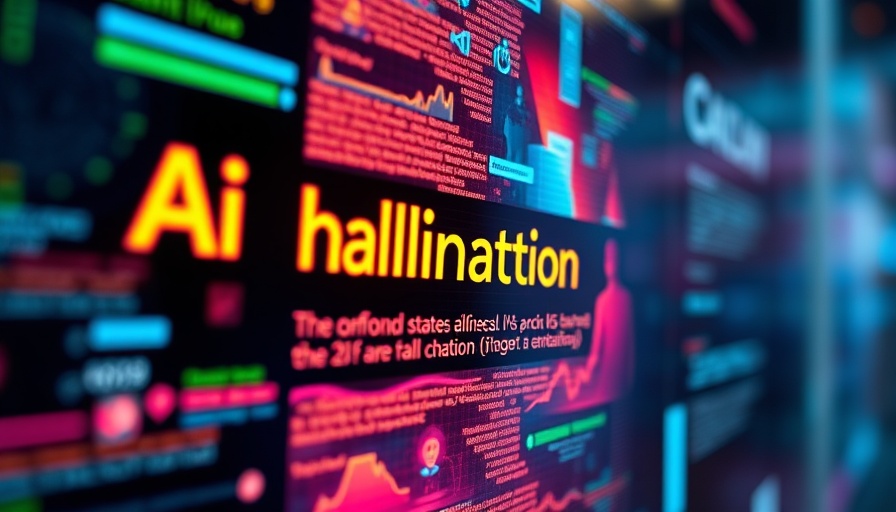
The Rise of Hallucinated Links in AI Content Generation
As AI technology advances, so do its challenges. One of the most pressing issues now impacting website owners and SEO professionals is the phenomenon of hallucinated links—fake URLs generated by AI that do not lead anywhere, resulting in frustrating 404 errors. Recently, Google's John Mueller highlighted this emerging trend, suggesting that it will become increasingly common, leading to potential SEO pitfalls that webmasters need to navigate carefully.
The Impact of AI on Website Management
With tools like ChatGPT and others taking center stage in content generation, it’s not just the quality of the content at stake, but also the reliability of the links and references provided. Dan Thornton, a notable agency owner, recently observed an uptick in these nonsensical URLs sprouting from AI content creation, leading to significant 404 errors on client websites. Thornton's query reflects a common dilemma: should these erroneous links be redirected to valid pages, or is it better to let them remain broken?
Pragmatic Approaches to 404 Errors
Addressing 404 errors necessitates a balanced approach. On one hand, ignoring them could lead to a poor user experience and potential penalties by search engines. On the other hand, continually redirecting to existing pages presents its own set of complications. According to insights from reference articles, utilizing AI tools can streamline the process of managing these errors efficiently.
Using AI to Tackle 404 Scenarios
Innovative solutions such as the 404 Error Hound or AI-driven services help in categorizing and resolving these website issues swiftly. By analyzing patterns in link errors and referring data through tools that integrate with Google Analytics, website administrators can better manage their sites' health. These AI tools automate the tedious process of identifying broken links and suggesting suitable redirects based on content similarity, drastically reducing the manual labor involved.
Understanding the SEO Implications
A high frequency of 404 errors can significantly detract from a website’s credibility in the eyes of both users and search engines. This is where focusing on meaningful SEO metrics becomes crucial. Ignoring hallucinated links could potentially lead to a ripple effect—damaging organic traffic and impairing site reputation. Conversely, proactively dealing with these issues by implementing redirects or utilizing AI tools can enhance the site’s performance and user experience.
Future Trends: Navigating the Hallucinated Link Landscape
As technology evolves, the digital landscape will likely experience an increase in such errant URLs due to AI-generated content. Maintaining awareness of this trend will be essential for those managing online presences, especially in competitive fields like veterinary services where gaining new clients is paramount. By adopting advanced AI tools and best practices in handling broken links, veterinarians can ensure their practice stays ahead of potential pitfalls while also maximizing visibility.
Taking Action: Strategies for Veterinary Clinics
For veterinary clinic owners and managers, it is imperative to integrate reliable SEO strategies to counter these emerging challenges. Regular audits of your website, employing AI tools for error analysis, and promptly addressing any broken links can significantly boost website performance. Additionally, prioritizing quality over quantity in content generation can mitigate the risks associated with AI hallucinations.
As we venture deeper into the AI landscape, it's clear that vigilance and adaptation are key. Implement advanced monitoring tools now to mitigate the scandals of hallucinated links and ensure your clinic’s online presence remains robust and reliable.
 Add Row
Add Row  Add
Add 

 Add Row
Add Row  Add Element
Add Element 




Write A Comment